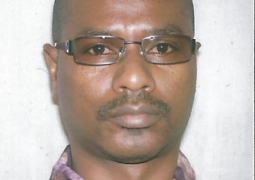Plans are already at an advanced stage to organize the African Centre for Democracy and Human Rights Studies-United Nations Development Programme capacity building training for a select group of media personnel. It is expected to get off the ground shortly, with an intensive course schedule that will run for three weeks.
This is a further boost to journalism practice. Not too long ago Media Agenda also conducted a training programme for journalists, including reporters and editors. These training programmes are worthwhile because journalism is expanding in this country, with the entry of The Voice and Daily News newspapers into the market. This therefore means that there is a greater demand for trained and trained journalists to run the existing and emerging papers.
The forthcoming training programme is especially tailored to satisfy the market needs, as its objectives indicate. Among the many objectives of the training programme are deepening participants' understanding of the nature and characteristics of journalism, its history and best practices; enhancing the capacity and skills of journalists to ensure accurate and balanced reporting; heightening the level of awareness on total human development of the population; strengthening professional standards and economic viability of media houses to strongly advocate human development. The upshot is to bring into existence a vibrant, independent and professionalized media in The Gambia.
It is for this reason that the training programme is divided up into eight interrelated modules. The modules include the nature and practice of journalism; good journalism methods and practices with emphasis on the techniques of news writing. Others are the history of journalism, English for the journalist; ethical standards as well as professional code of conduct and social responsibility; essential laws for the journalists, together with the law and the media in The Gambia; human rights and gender sensitive reporting; and Internet information research. The course content is equivalent to a diploma course in journalism, especially as all the courses will be taught by experts with vast experience in their chosen fields.
It is an opportunity for the participants to marry theory with practice, as the lectures will be accompanied by assignments and a field trip to media houses. The participants will also be divided into three groups to work on a research topic. This topic will have to be completed and turned in for assessment at the beginning of the third week of the course. At the end of the course, prizes will be given for the best project as well as for the best participant. The certificates will also be graded in the order of pass, merit and distinction. The participants will therefore have to bear in mind that this is a demanding course that will require them to give all of themselves.
Given the fact that there is no journalism school in The Gambia, this course like the many other ones that have been organized in this country will help make up for that lack. Perhaps what we are witnessing is the birth of a journalism school in The Gambia, where certificate and diploma courses in journalism would be taught. Even when a journalism school is eventually established in the country, there will still b e need for short-term courses for media practitioners to keep abreast of developments in the journalism. Journalism grows and expands everyday, as it adapts to the changing needs of society. And the best journalists are those who are open to learning and training, formally and informally, on a daily basis. For success in journalism, there is neither a substitute nor a shortcut to training and learning. When the journalist is well trained, he or she is better able to carry out their statutory watchdog role of holding political and business leaders as well as other actors in the public sphere to account.
"Knowledge is power if you know it about the right person".
Ethel Mumford



